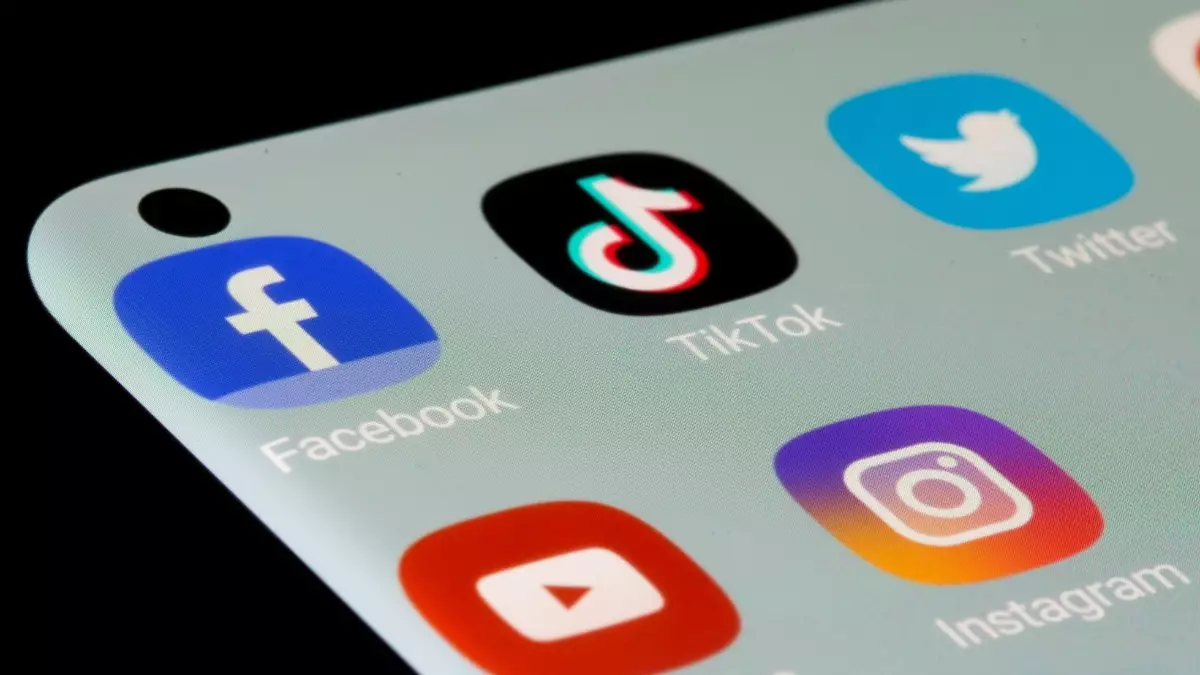On Thursday, Australia took a monumental step in addressing the alarming impact of social media on young people’s mental health by instituting a stringent social media ban for children under 16. This legislative move marks Australia as a frontrunner in advocating for youth safety on digital platforms, setting a significant precedent for other countries grappling with the same issues. The Social Media Minimum Age Bill, once enforced, will prohibit platforms like Facebook, Instagram, and TikTok from allowing minors to create or maintain accounts, or they will face severe penalties of up to A$49.5 million (approximately $32 million). The trial phase is set to commence in January, with the full implementation projected to roll out in a year.
The core reason behind this groundbreaking legislation is the escalating concern surrounding the influence of social media on younger users and their mental well-being. Reports have emerged highlighting a worrying trend where children experience severe mental health issues linked to social media bullying and harassment. The Australian government’s firm stance on this matter establishes the nation as a field test for other governments considering similar regulations, reflecting an urgent global call to action regarding child safety online.
While the law has received widespread public support—approximately 77% of Australians favor the regulation—it has not been without its detractors. Privacy advocates and some child rights groups have voiced concerns over the possible ramifications of such a sweeping ban. They argue that while the intention is noble, the execution might inadvertently remove safe spaces for vulnerable youth, including members of the LGBTQIA community and migrant teenagers. The fear is that this ban could isolate those who rely on online platforms for support, inadvertently worsening the very issues it seeks to mitigate.
Interestingly, the legislative process leading to this ban has also drawn criticism. Some tech industry representatives and legal observers have pointed out that the government’s hurried passage of the law did not sufficiently consider the existing frameworks and practices aimed at ensuring age-appropriate online experiences. Critics like Sunita Bose, managing director of a group representing multiple social media companies, highlighted the lack of proper methodologies for verifying user ages and called for clearer guidelines. This raises questions about how effectively the government can enforce the new law without creating undue burdens on both the platforms and the users.
The approval of this bill has broader political implications, serving as a significant win for Prime Minister Anthony Albanese, who faces an electoral challenge in 2025 amidst dwindling approval ratings. The nature of the public discourse surrounding the ban, particularly through a campaign spearheaded by major media outlets labeling it as “Let Them Be Kids,” has played a crucial role in shaping popular sentiment. The government initiated a parliamentary inquiry to gather testimonies from affected families, amplifying the voices of those who have suffered tragic consequences due to online interactions.
However, the introduction of such legislation also poses potential diplomatic challenges, particularly with the United States, home to many influential tech companies. Elon Musk’s response to the ban hinted at concerns over freedom of access to internet resources, indicating that the Australian government’s actions might be seen as an infringement on digital rights. Australia’s history of confrontations with tech giants, including demanding payment for content, adds another layer of complexity to its relations with these companies.
While the intention behind the legislation is clearly to protect children from the potential harms of social media, a delicate balance must be struck between ensuring safety, protecting privacy, and upholding rights to free expression. Critics fear that aggressive age verification measures could lead to enhanced data collection strategies, setting a troubling precedent for state surveillance. As a compromise, a last-minute amendment did ensure that platforms are required to offer methods of age verification that do not necessitate the upload of identification documents, navigating the often fraught terrain of personal privacy.
Australia’s bold initiative to restrict social media access for minors serves as both a hopeful step towards safeguarding youth mental health and a point of contention regarding privacy and rights. As other nations watch closely, the effectiveness of this legislation will likely be evaluated through its impacts on both societal safety and individual freedoms. The ultimate challenge lies in balancing these competing interests, as lawmakers and tech companies work to find common ground in protecting the mental wellness of future generations while ensuring their rights to access and expression remain intact.


Leave a Reply